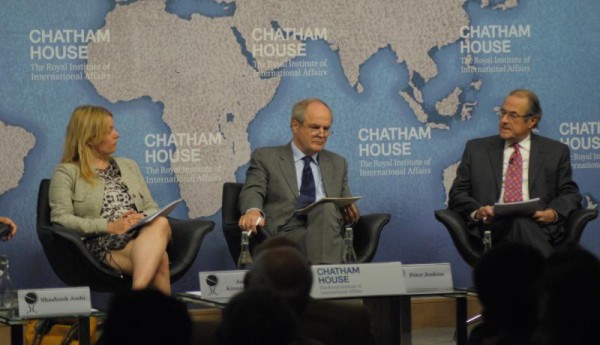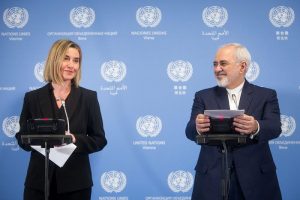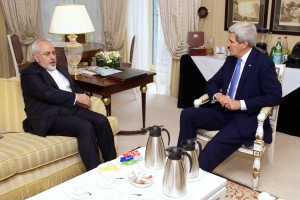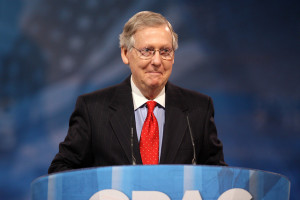by Peter Jenkins
Sir Richard Dalton, British ambassador to Iran from 2002-06, and I have co-authored a paper for the Royal Institute of International Affairs (Chatham House) on Iran’s Nuclear Future. Below is an edited transcript of the remarks with which I introduced the paper at a meeting in London on Sept. 4:
May I start by reminding you that the US intelligence estimate is that Iran’s leaders have not taken a decision to acquire nuclear weapons. This is what the US Director of National Intelligence stated on Jan. 29, 2014: ‘Iran has made technical progress…from which it could draw if it decided to build missile-deliverable nuclear weapons….This makes the central issue its political will to do so…We do not know if Iran will eventually decide to build nuclear weapons.’
A different question is whether Iran’s leaders seek a latent capability to make nuclear weapons at some future date. Israel in particular fears that they do, but the evidence is not conclusive. And, most important, possession of a latent capability is not outlawed by the Nuclear Non-Proliferation Treaty (NPT); nor is it uncommon; nor is it necessarily a threat to international peace and security.
Nonetheless, on and off since 2003, nuclear negotiations with Iran have centred on Iran’s acquisition of an indispensable component of a latent capability: a uranium enrichment plant at Natanz (complemented some years later by a small plant at Fordow). The West has sought to deny Iran the option of using those plants to produce highly enriched uranium by closing them down, or at least severely curtailing their potential.
In the negotiation launched in September 2013 this has led the US and EU to demand that Iran reduce the number of operating centrifuges at Natanz to a few hundred from a little over 9,000 today and take out of service all 650 operating centrifuges at Fordow.
The most important beliefs underlying the recommendations in our paper are that continuing insistence on deep cuts at Natanz will doom the current negotiation to failure; and that insisting on deep cuts serves no useful end, since no state would be likely to use a facility visited by international inspectors to breakout. A state is more likely to try to build a secret plant for that purpose.
This is all the more so in Iran’s case if Iran is close to being able to deploy far more efficient centrifuges than those at Natanz. Why break out with 9,000 first-generation IR-1s at an inspected site if you can hope to break out undetected with 500 IR-8s in a very small, secret plant?
Nonetheless, so much has been made of the need to inhibit breakout, and Iran’s trust deficit in Western eyes is so great—not least because it concealed significant aspects of its nuclear program from 1985 to 2003—that the number of centrifuges at Iran’s disposal in the coming years is an issue. Our paper proposes that the West accept Iran’s very strong domestic political reasons for not going below 9,000 at Natanz but ask Iran to agree not to expand its available capacity until:
- first, the International Atomic Energy Agency (IAEA) has given credible assurances as to the absence of undeclared nuclear material or activities in Iran,
- and, second, Iran has designed and is close to completing an all-Iran power reactor that will be needing Iranian-made fuel.
We believe this latter point to be over a decade in the future. So our proposal provides for a lengthy confidence-building period during which Iran can demonstrate that it deserves to be seen like several other NPT non-nuclear-weapon states that possess dual use facilities.
I should perhaps explain that Iran will not need an expanded enrichment capacity to fuel Russian-built reactors. The Russian-owned Rosatom earns good money by supplying fuel for its reactors and will not want to disclose to Iran the technical information that Iran would need to supplant Rosatom safely.
We believe that the resolution of the breakout issue can unlock agreement on all the other issues with which the negotiators are wrestling, and on which we also make recommendations in our paper.
Let me just touch on the over-arching objective of the negotiation. It cannot be to make it materially impossible for Iran ever to make nuclear weapons. The only way that could be achieved is by invading Iran and remaining there for a great many years. I won’t insult your intelligence by explaining why that is an unattractive option.
So we are suggesting that the goal be to minimise the risk that Iran will ever be tempted to misuse dual-use nuclear technologies, in breach of its NPT obligations, by affecting the political will of Iran’s leaders and influencing their cost/benefit calculations:
- through an agreement that Iran considers as reasonable and consistent with core interests, and not discriminatory or unequal;
- by ensuring Iran would have a great deal to lose—not least the good reputation that President Hassan Rouhani and others are eager to acquire—by violating the NPT;
- and by deterring violation, additionally, through a combination of state-of-the-art IAEA monitoring and US military power.
Finally, let me make four brief points.
The advent of President Rouhani and Minister Javad Zarif has created a great opportunity. Both are familiar to us from the 2003-05 negotiation. They are serious, trustworthy interlocutors with whom Western ministers can afford, politically, to be seen to be dealing.
A nuclear agreement will not transform Iran’s relations with the West. Iran’s Supreme Leader will want still to keep the West at arm’s length, fearing the corrosive effect of Western values on Islamic values. But it will re-open Iran to European trade and investment, and it will facilitate cooperation on several international political issues.
Western governments would be ill-advised to pay too much attention to the prime minister of Israel on this problem. Mr. Netanyahu has been fulminating that Iran is on the verge of acquiring nuclear weapons since 1992. He has political motivations. Several of his former intelligence and military advisers have contradicted his claim that Iran’s nuclear program presents an existential threat to Israel.
Saudi claims that allowing Iran to retain a uranium enrichment capability will trigger a nuclear arms race in the Middle East also need to be taken with more than the proverbial pinch of salt. They too have political reasons for sounding an alarm that, objectively, is unwarranted on the evidence available at this point.
Photo Credit: Chatam House






“We do not know if Iran will eventually decide to build nuclear weapons”. The possibility of this is almost vanishingly small. Go to the following website wideasleepinamerica.com/2012/10/the-goldberg-predilections-ignoring.html and you will find scores of statements by dozens of Iranian religious and political leaders over several decades all expressing the same policy: “The Islamic Republic, logically, religiously and theoretically, considers the possession of nuclear weapons a grave sin and believes the proliferation of such weapons is senseless, destructive and dangerous” (Khamenei).
To my mind the Iranian Government is the sanest in the world on the question of nuclear weapons. World leaders should be putting their energies into the establishment of a nuclear-weapons-free zone in the Middle East, as Iran has proposed, as a next step towards total nuclear disarmament.
The way the world is shaping now a days one can not determine what will happen next week or next year or 10 years from now. So to deny Iran the its right under NPT to a peaceful nuclear program because the mad and rabid dog of Israel, the butcher of Gaza demand is nonsense. US should just become independent of Israel and AIPAC and end this circus with Iran. After all they need Iran to cleanup their mess with ISIS.
As the tide turns. Here’s an option: 1- disarm everyone, including Israel, 2- Arm everyone just like Israel. The possibility that by arming everyone in the M.E.N.A., it’s quite possible that they might either blow themselves to kingdom come, or embark upon a peaceful building-rebuilding-of the different states/countries, for the benefit of all. Of course, the U.S. has to also stop exporting the neocon war making abroad, instead rebuild its own country, both material wise as well as restoring the social standing of its citizens. Or bluntly put, keep its nose out of other peoples business. The worlds biggest threat, is the financial greed that has overtaken the financial sector, not whether or not Iran refines Uranium or has X-number centrifuges.